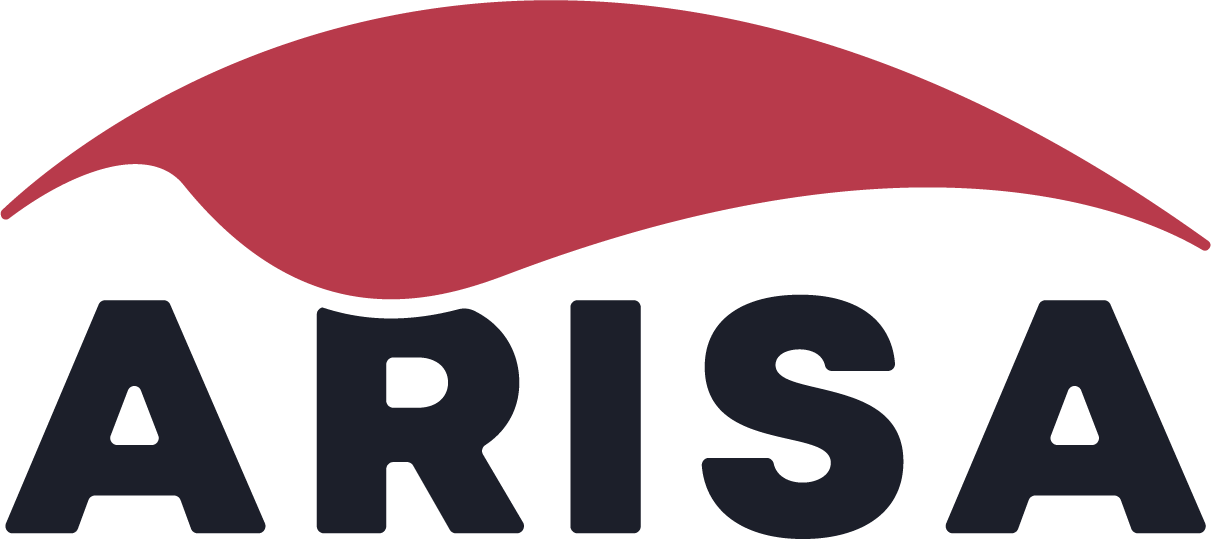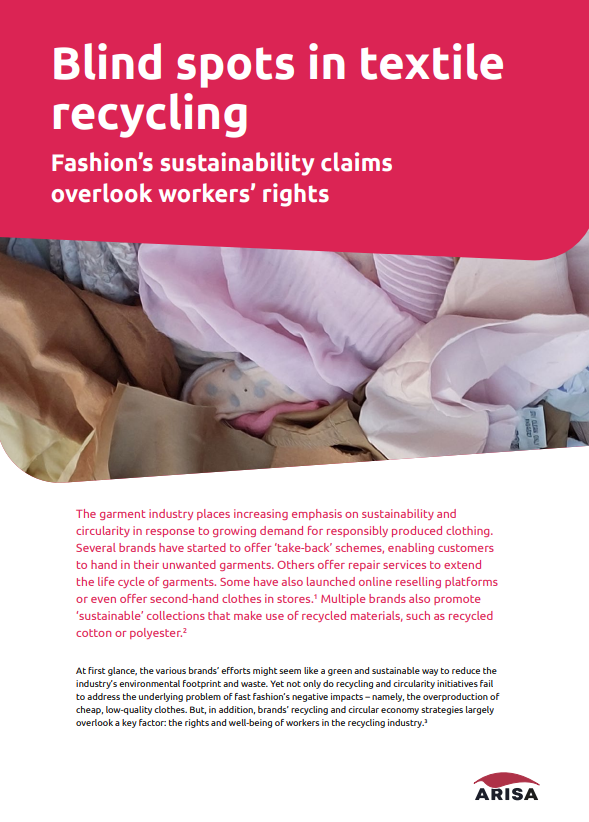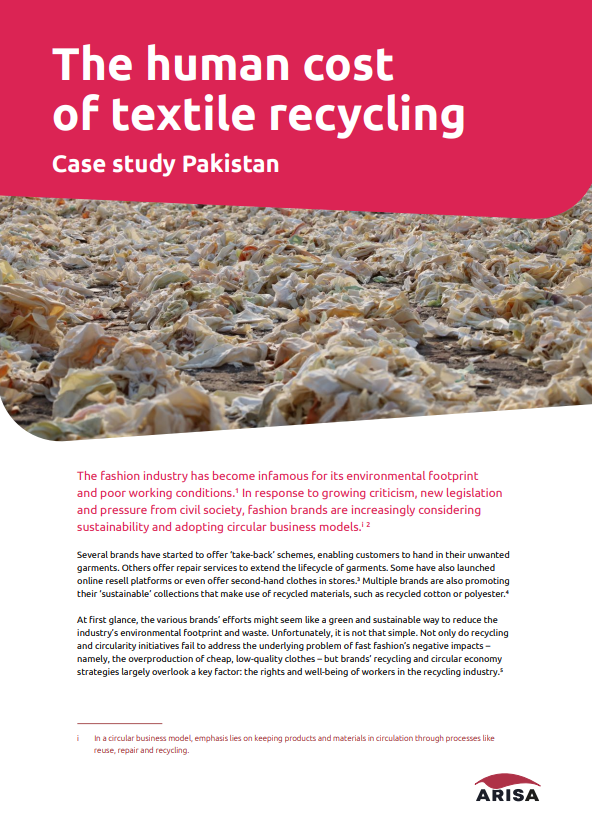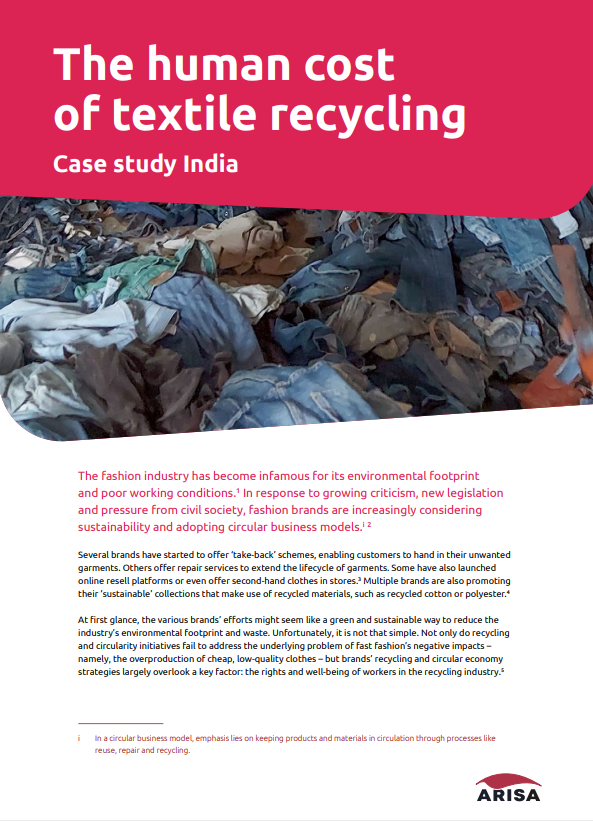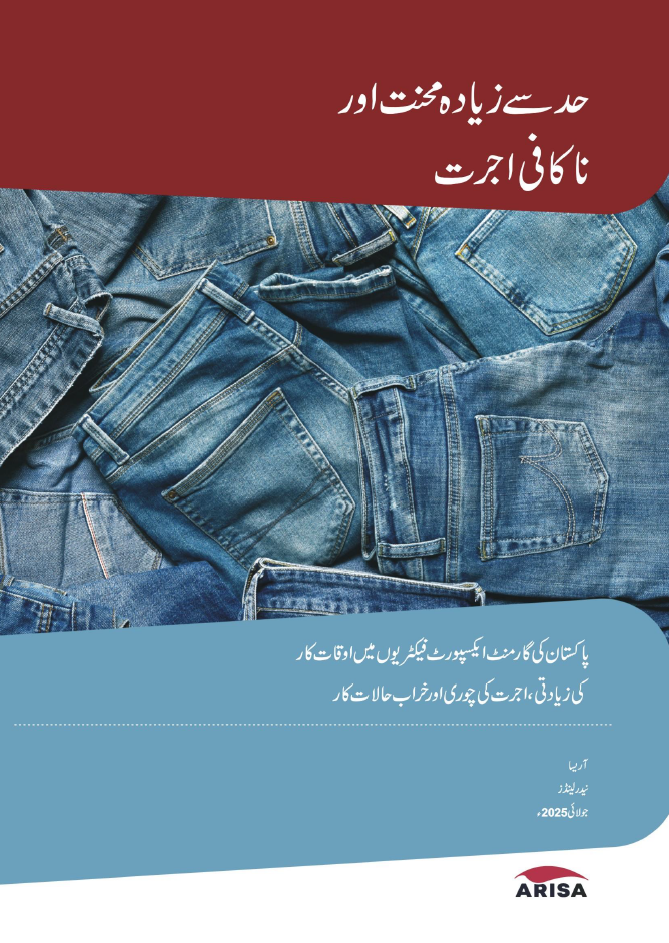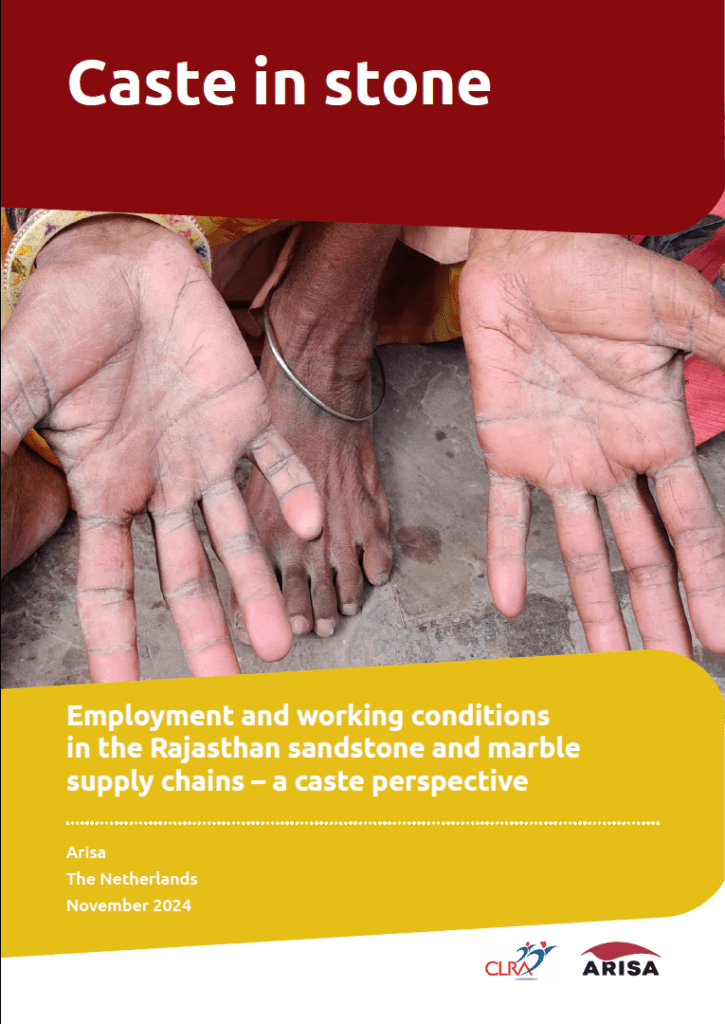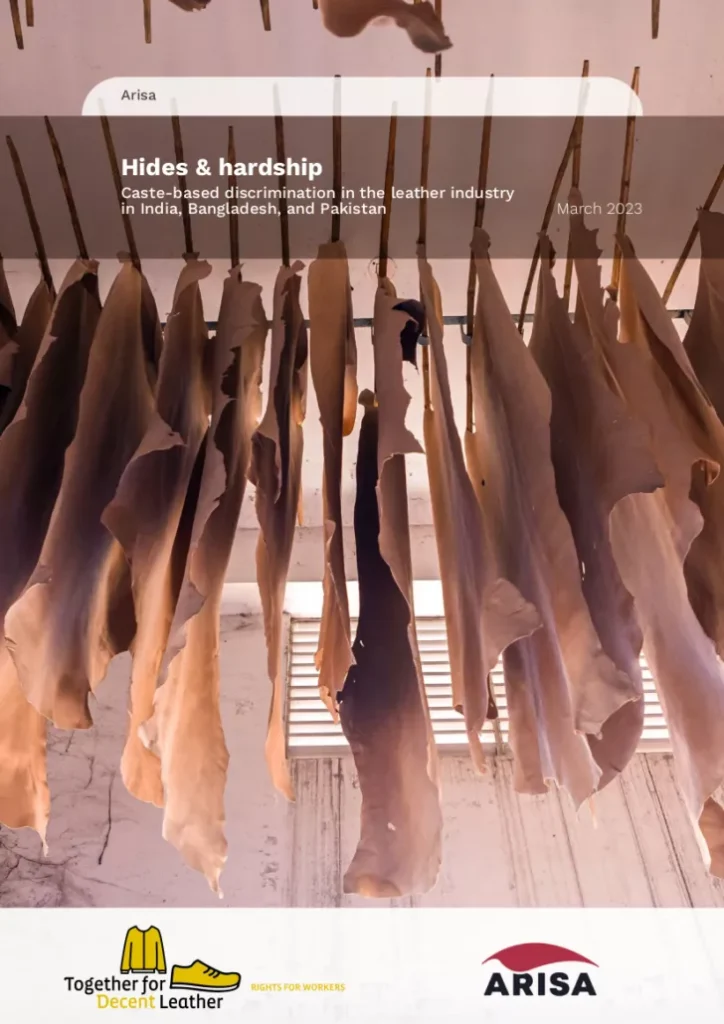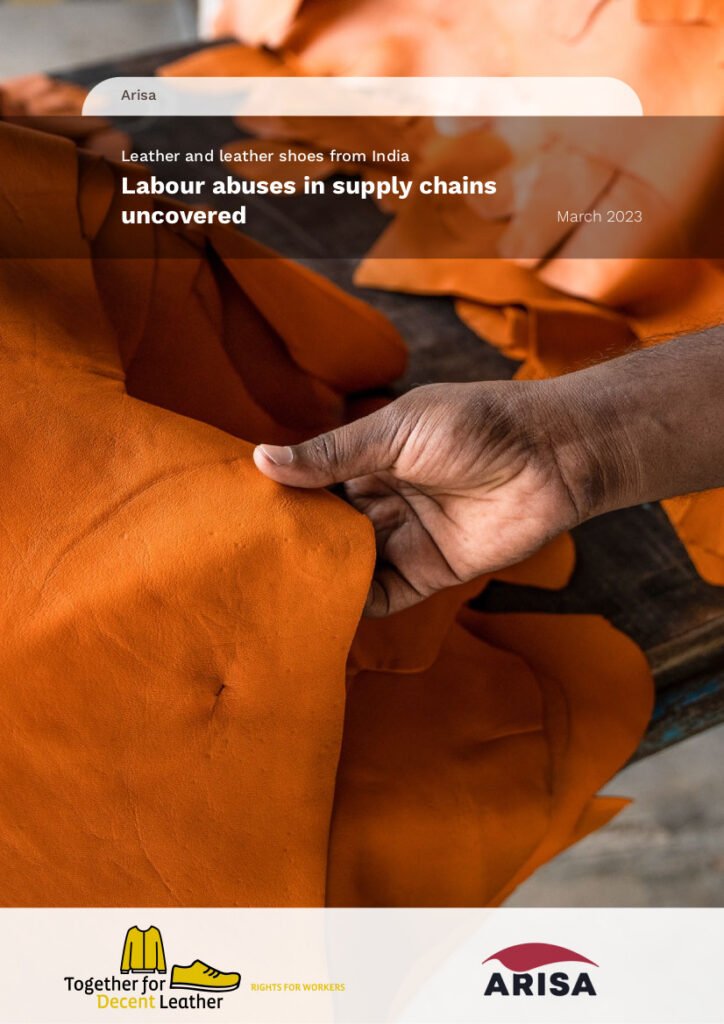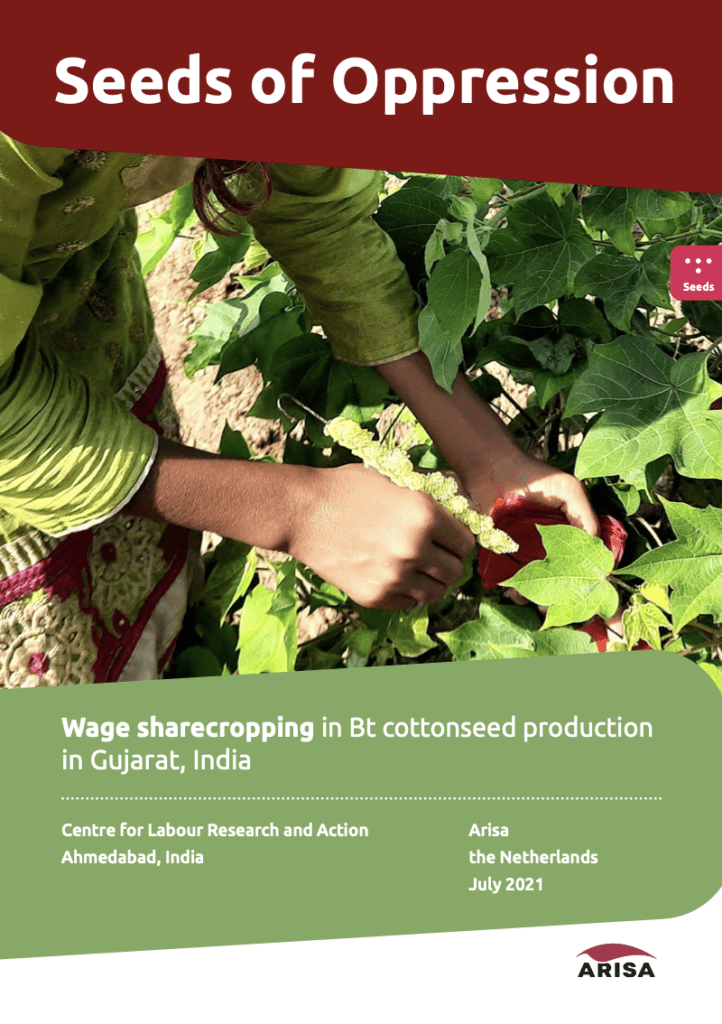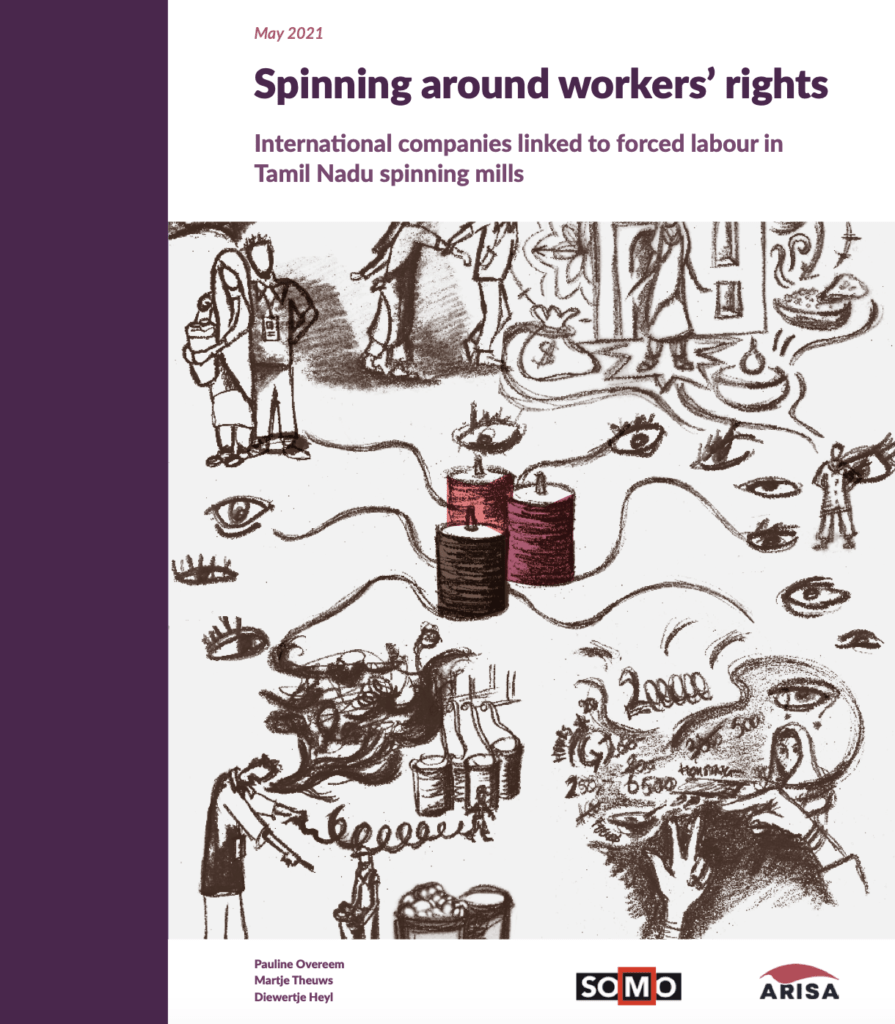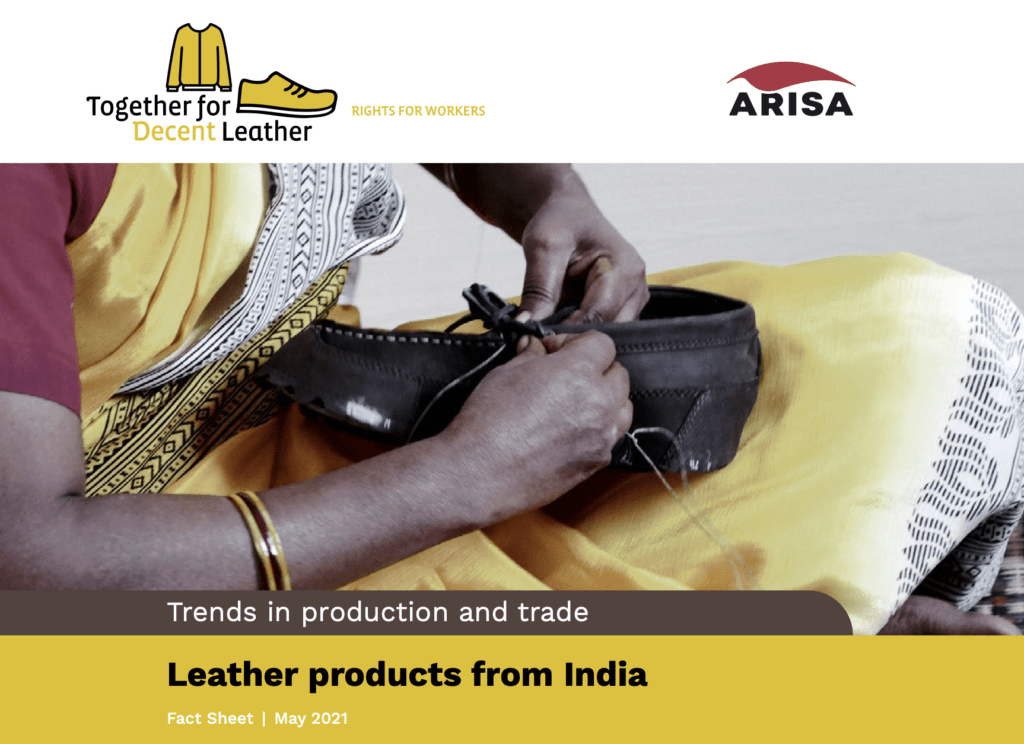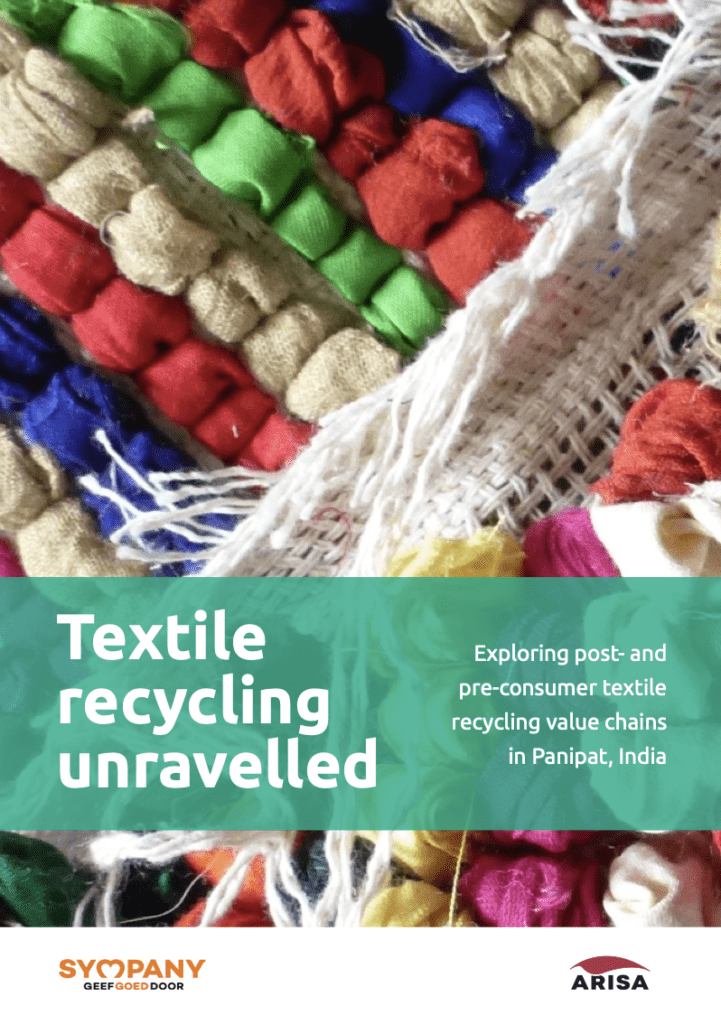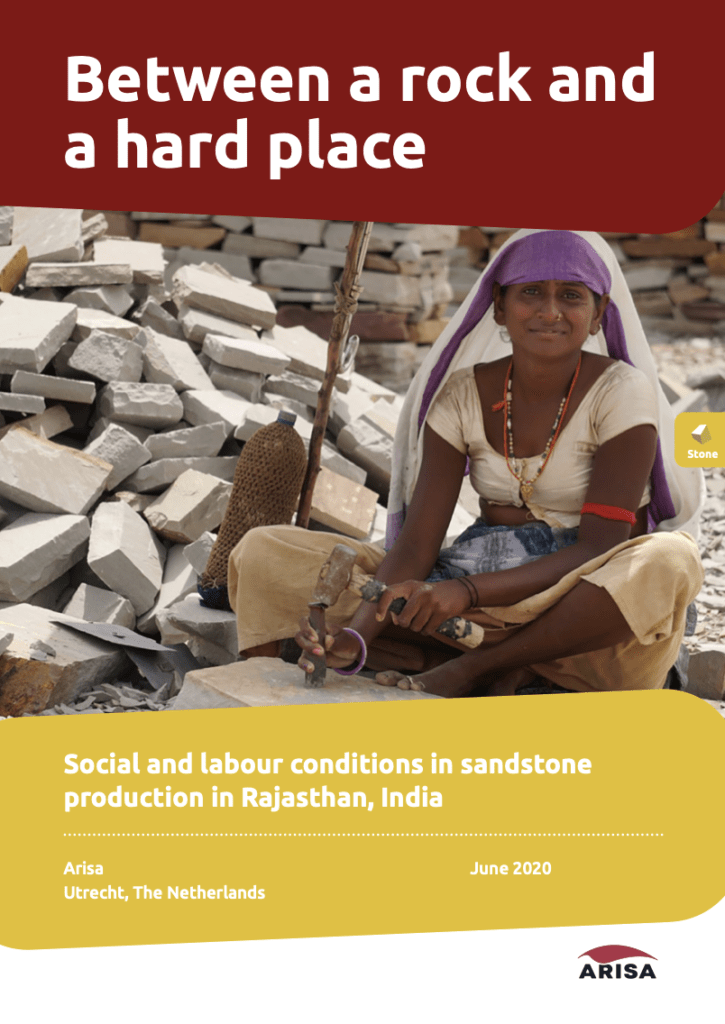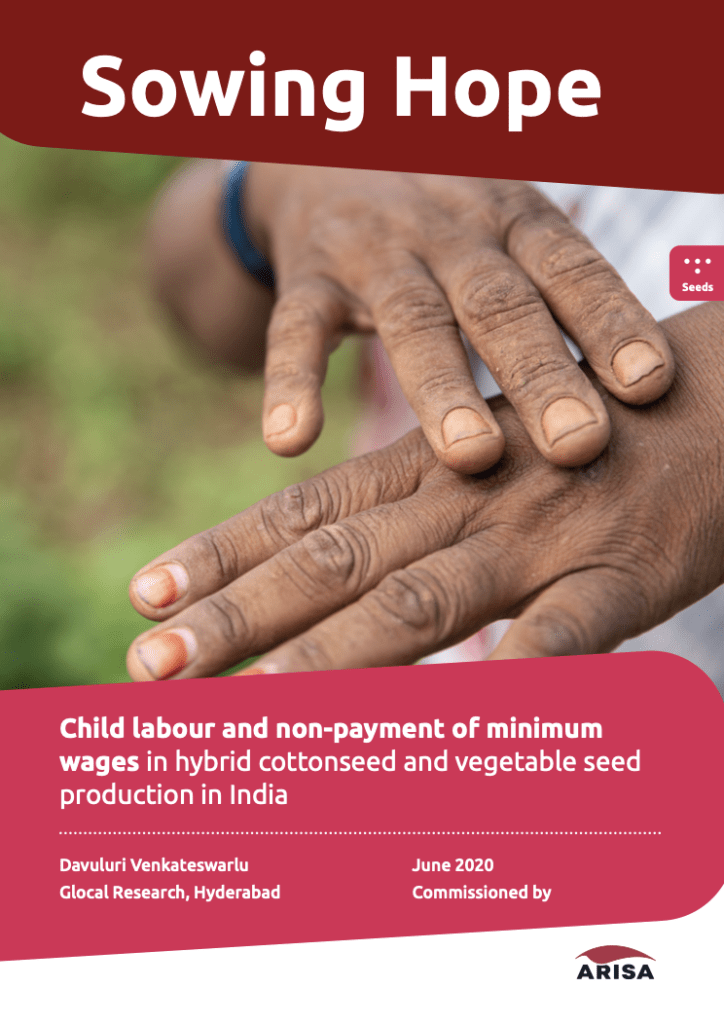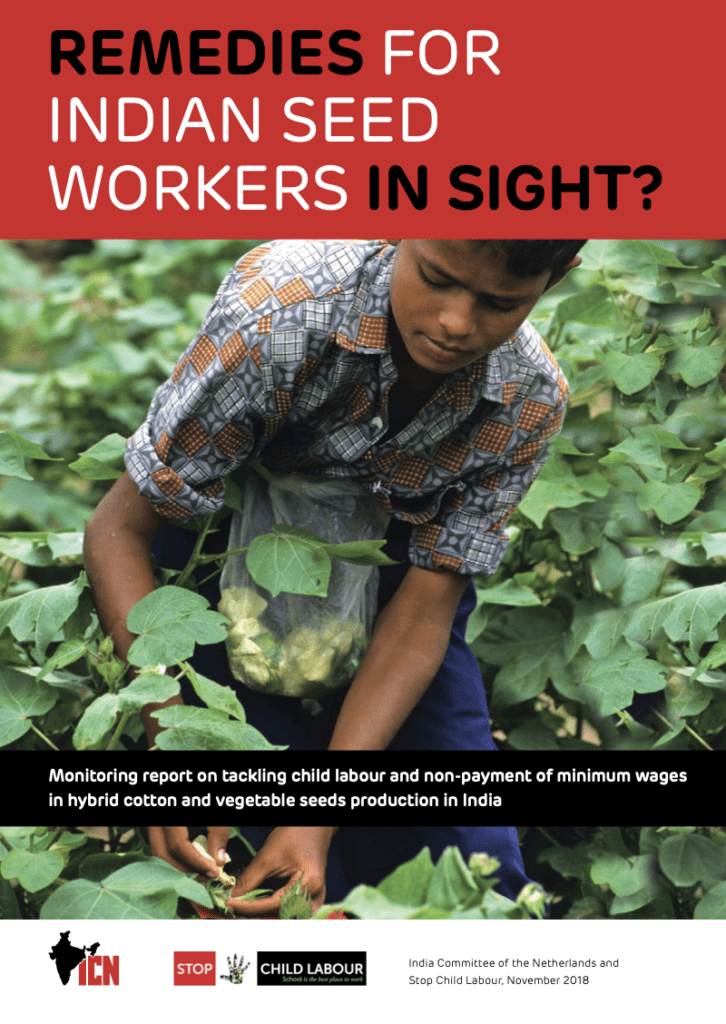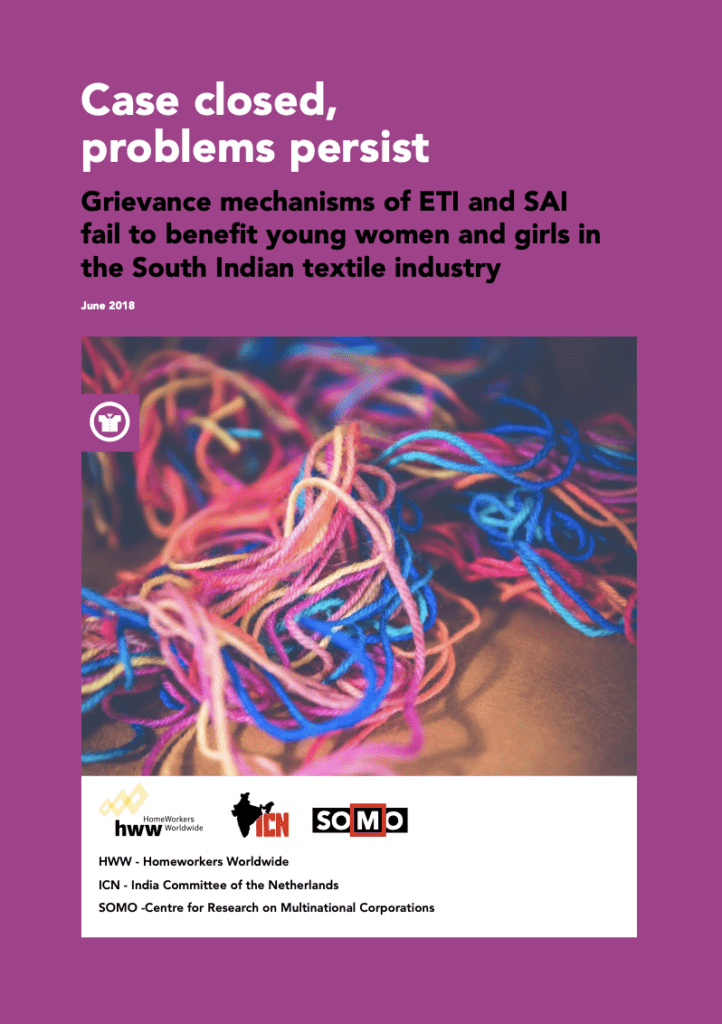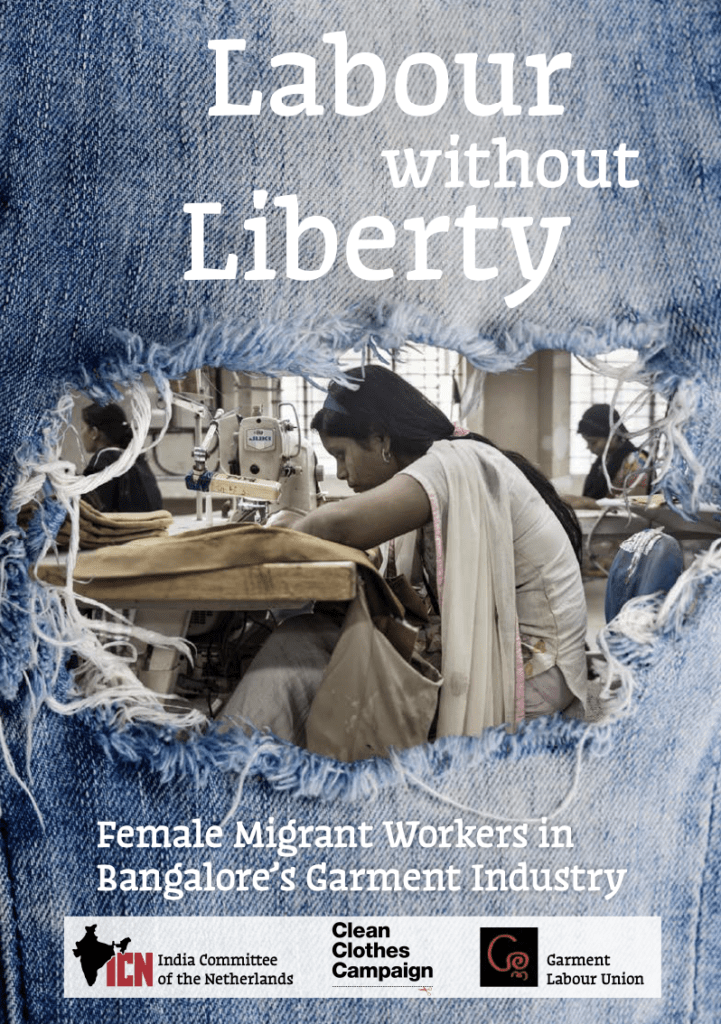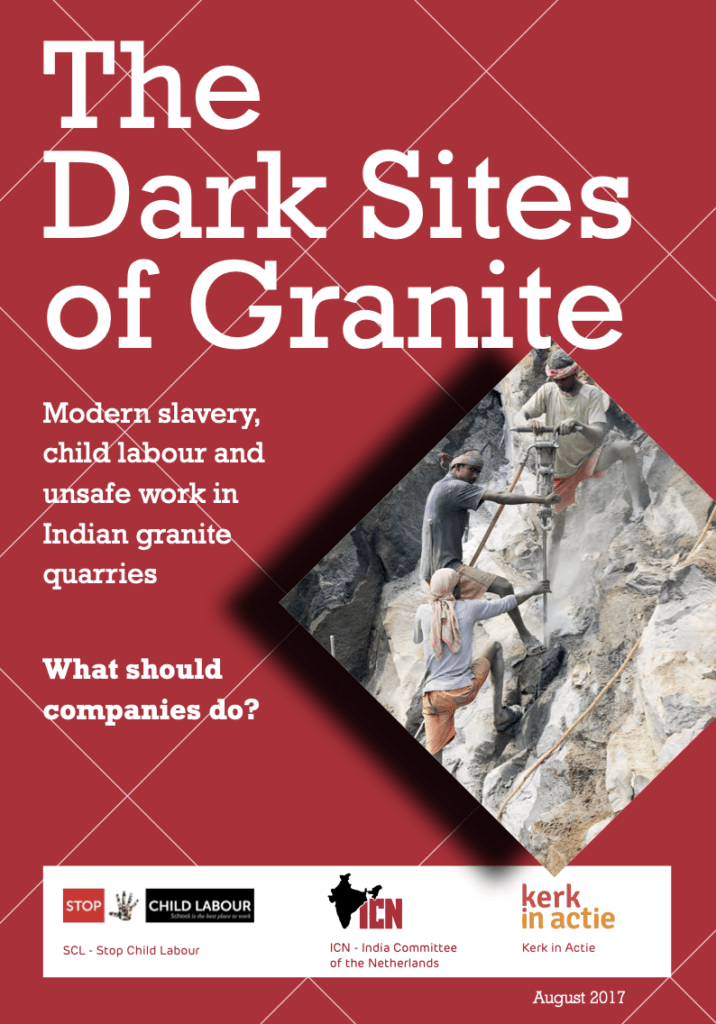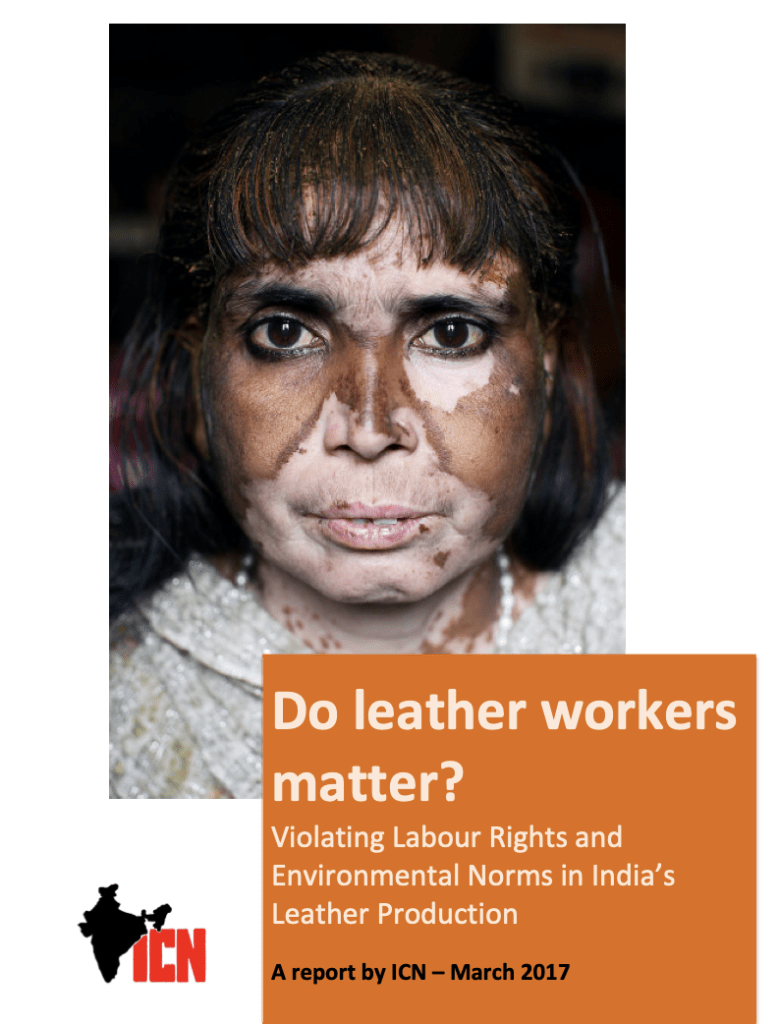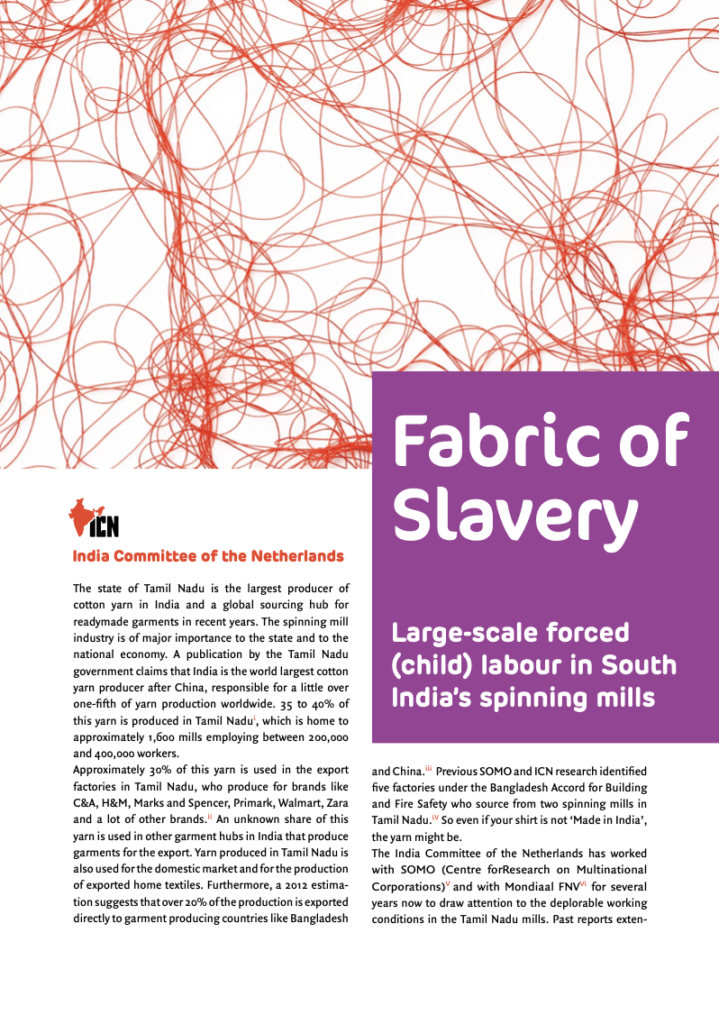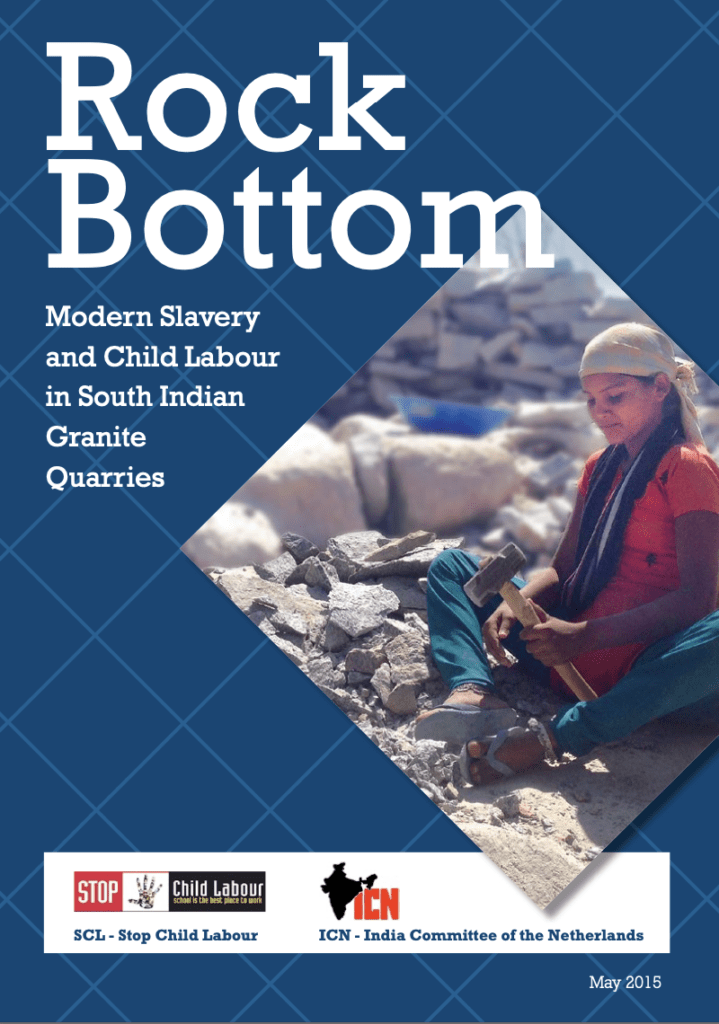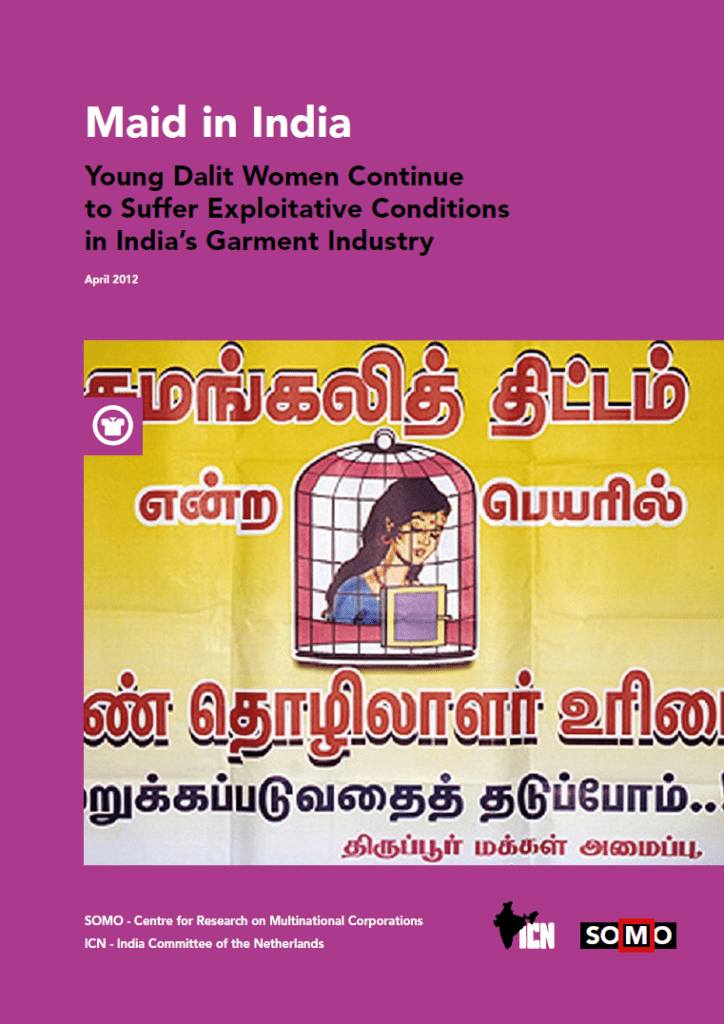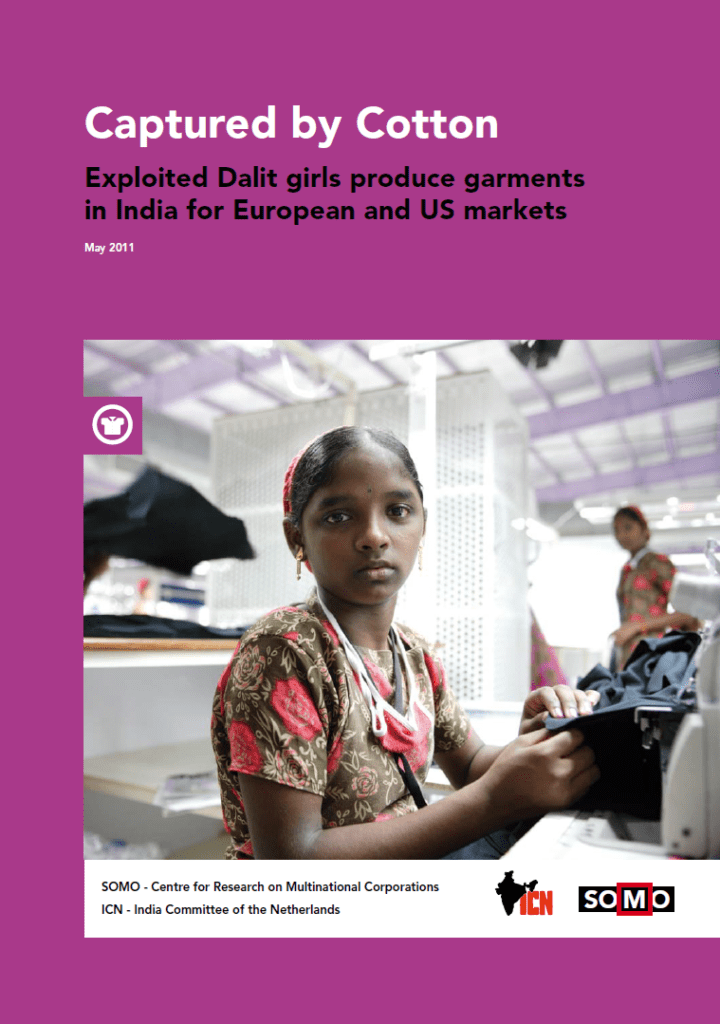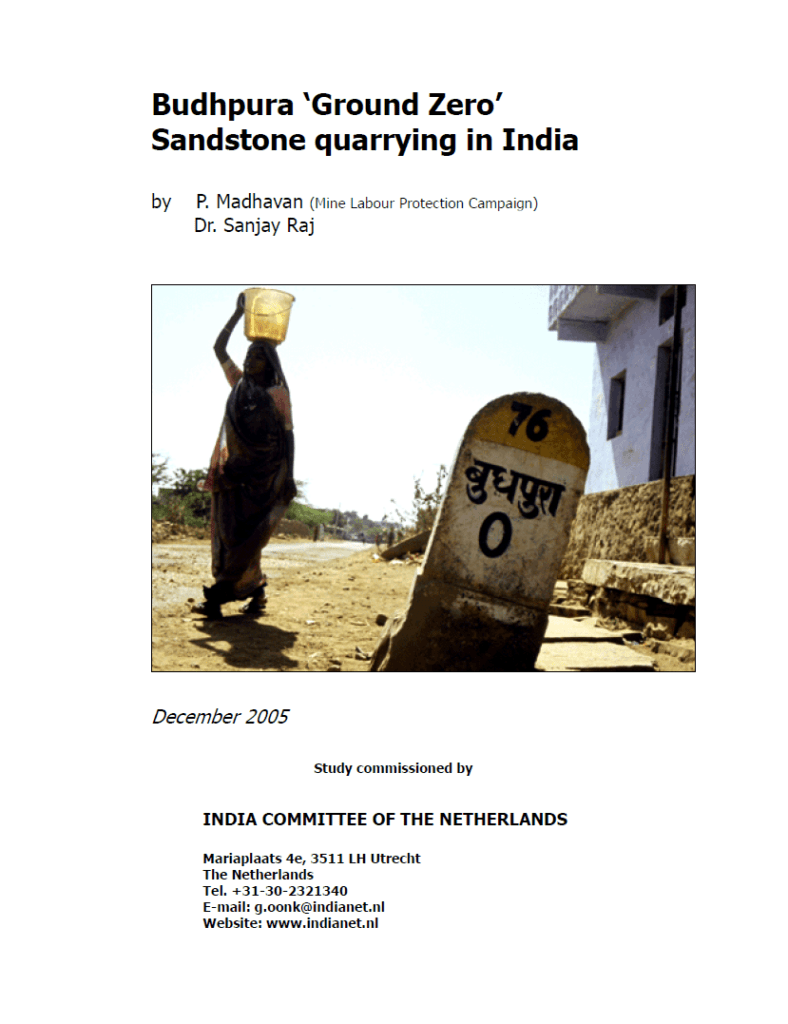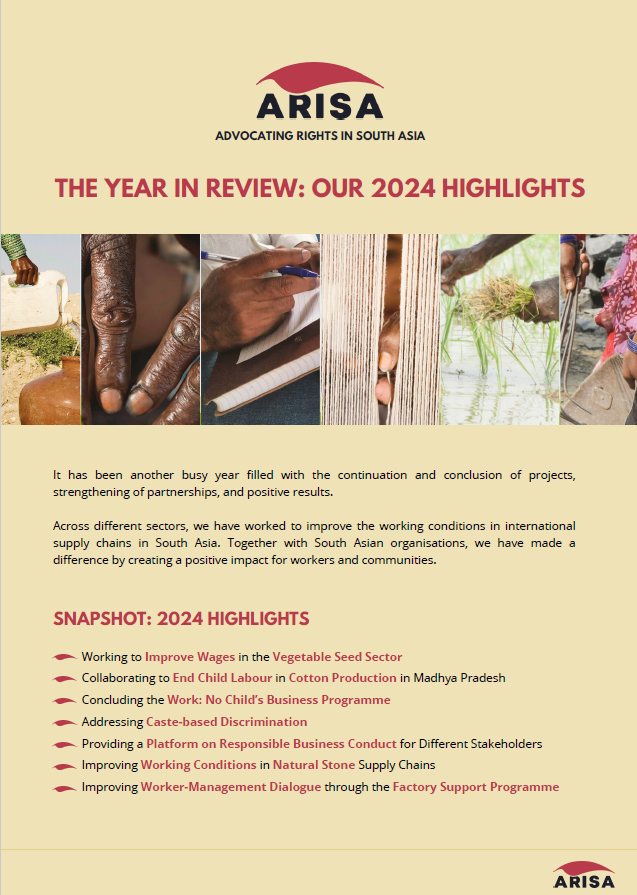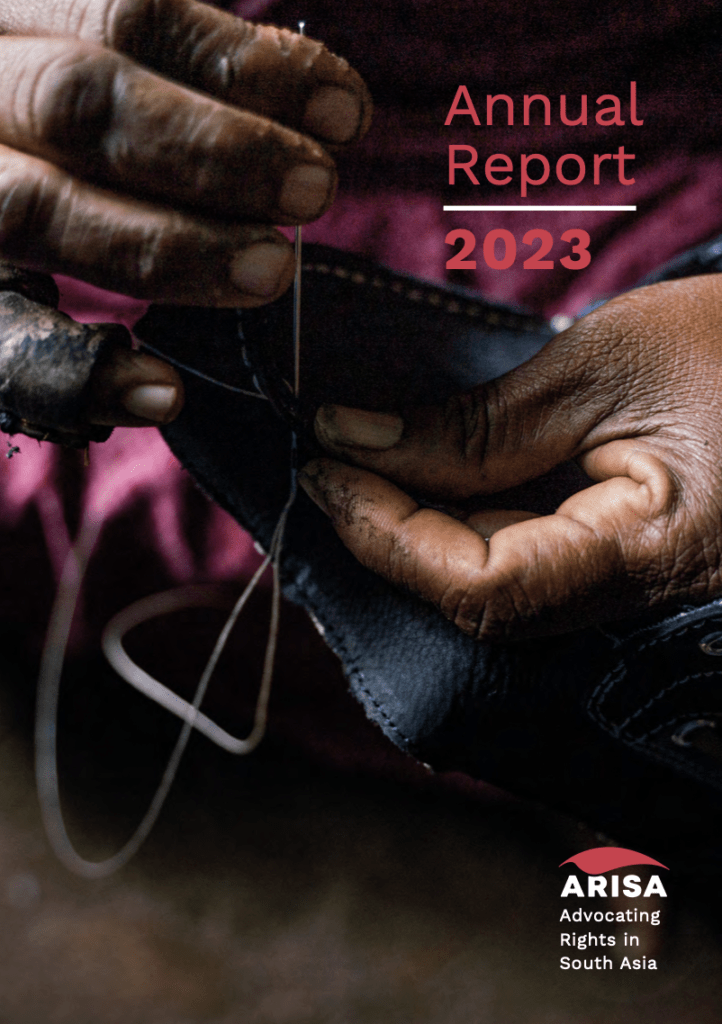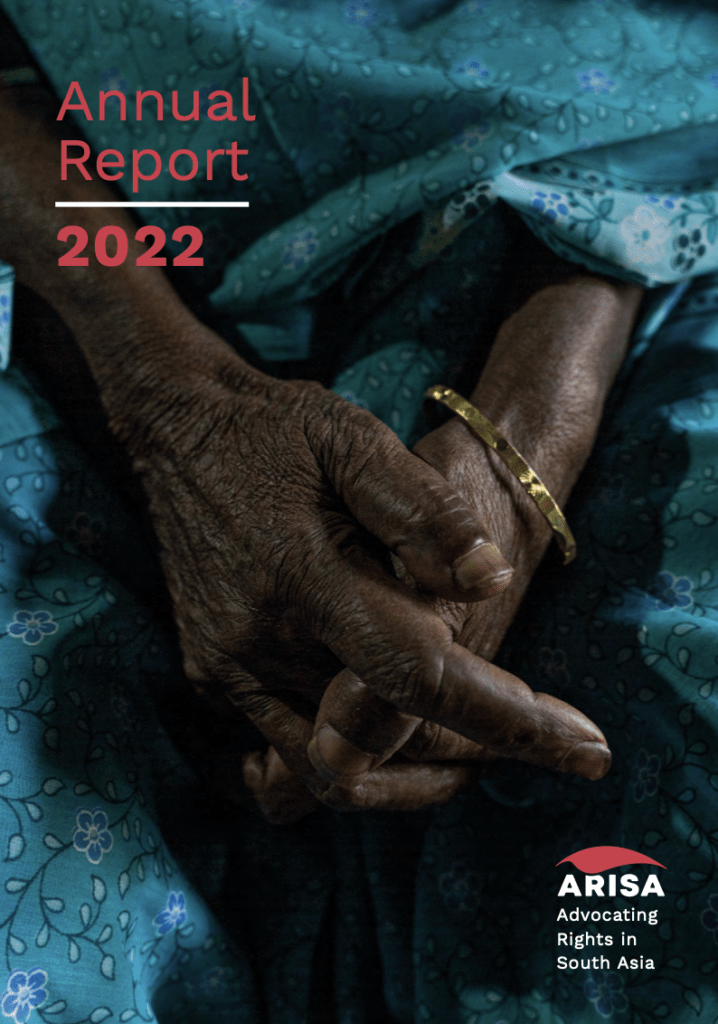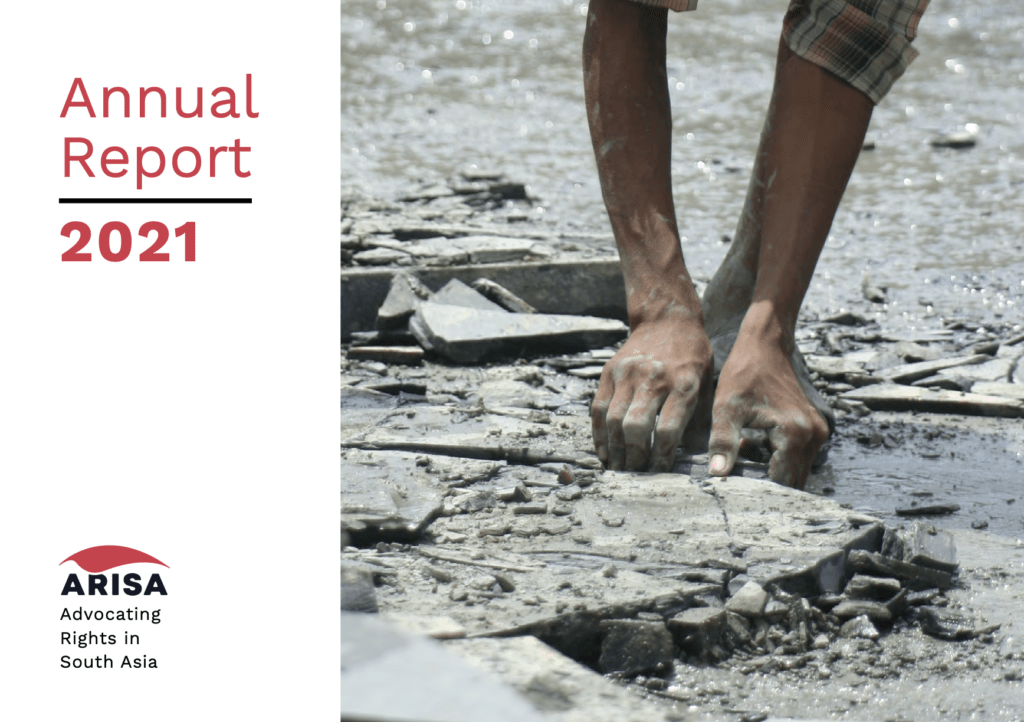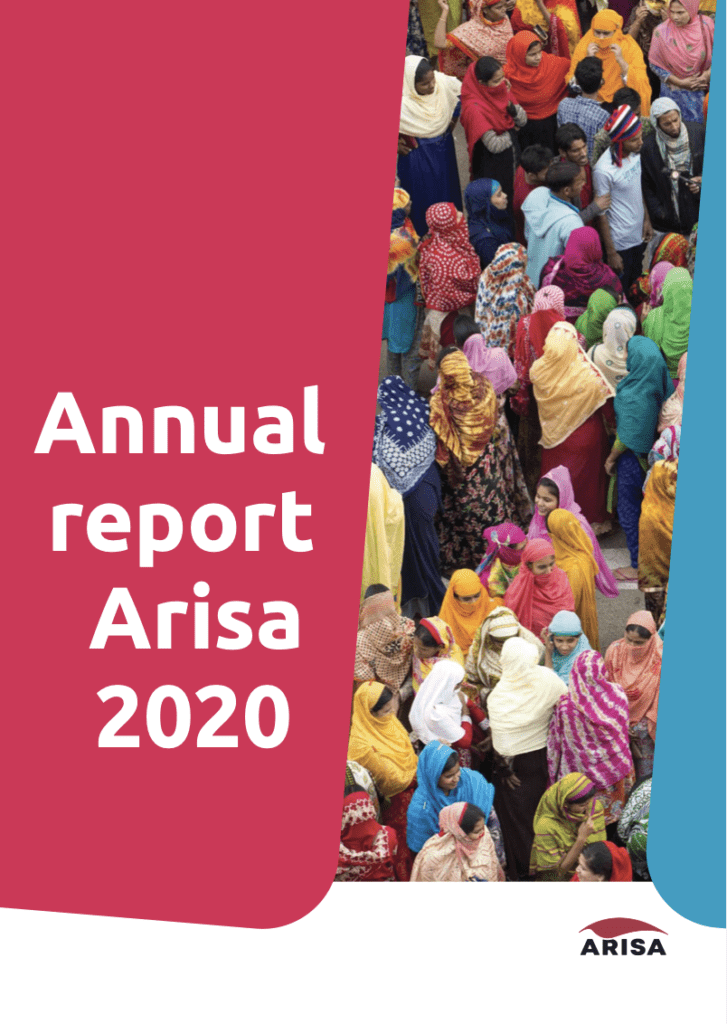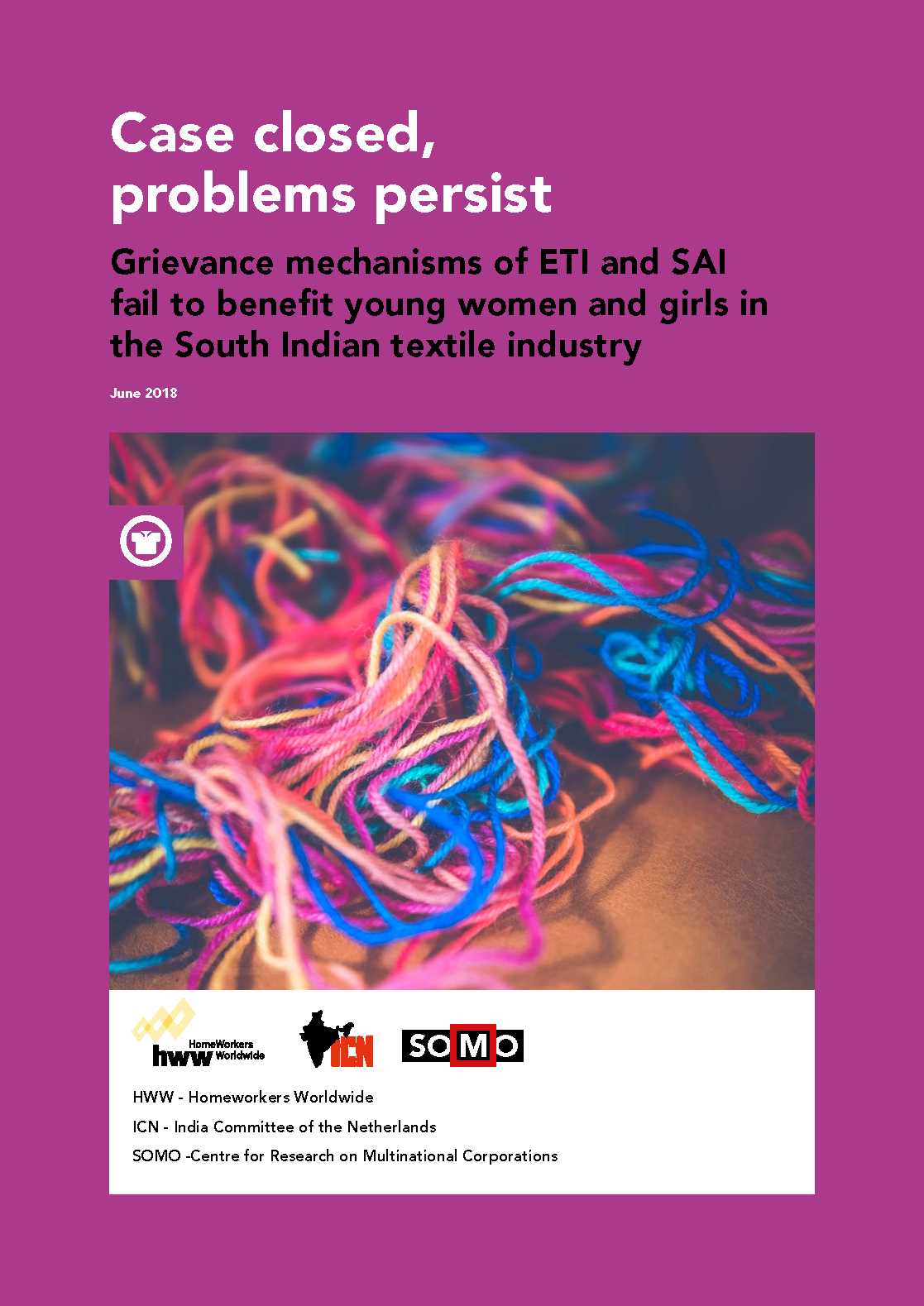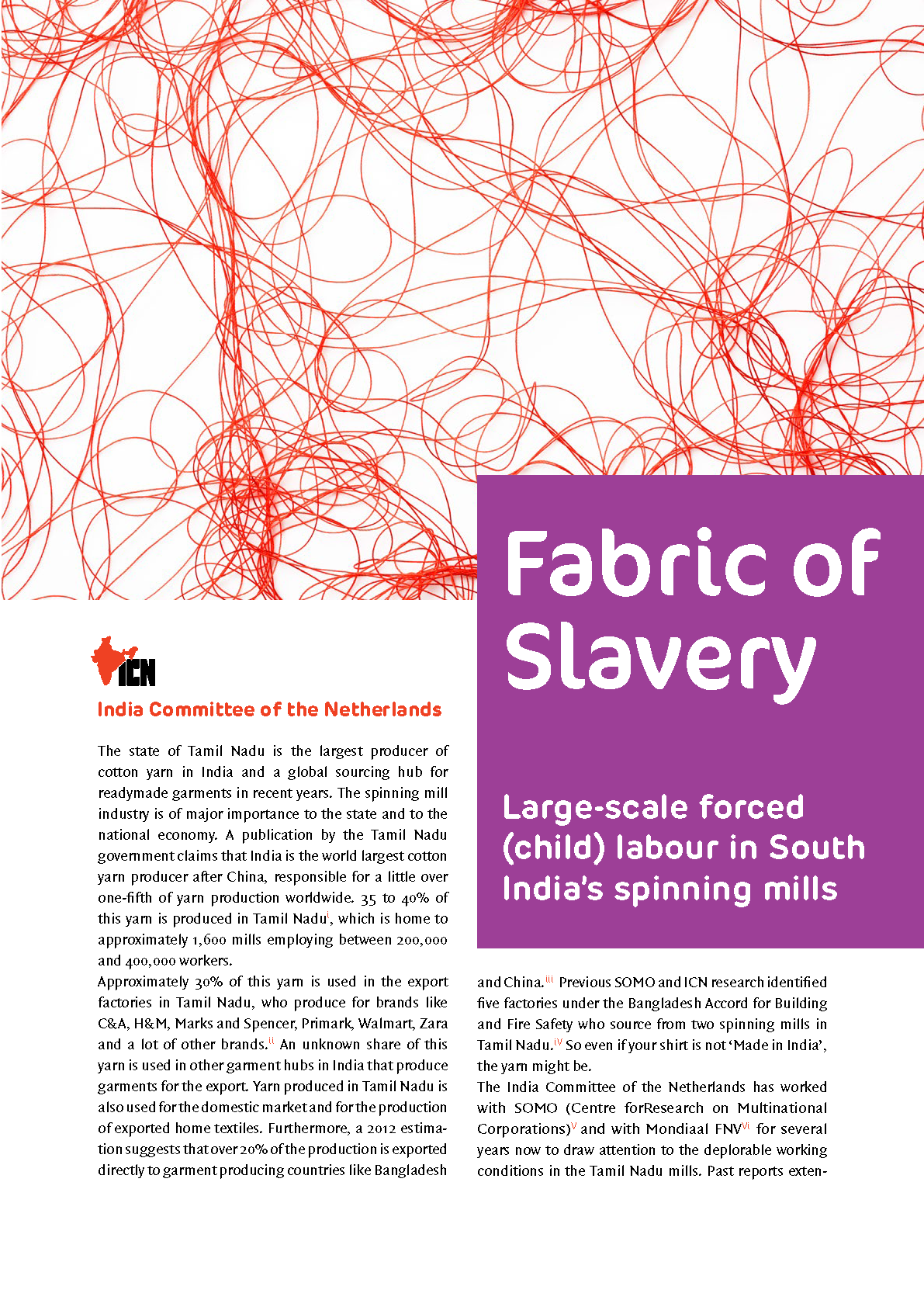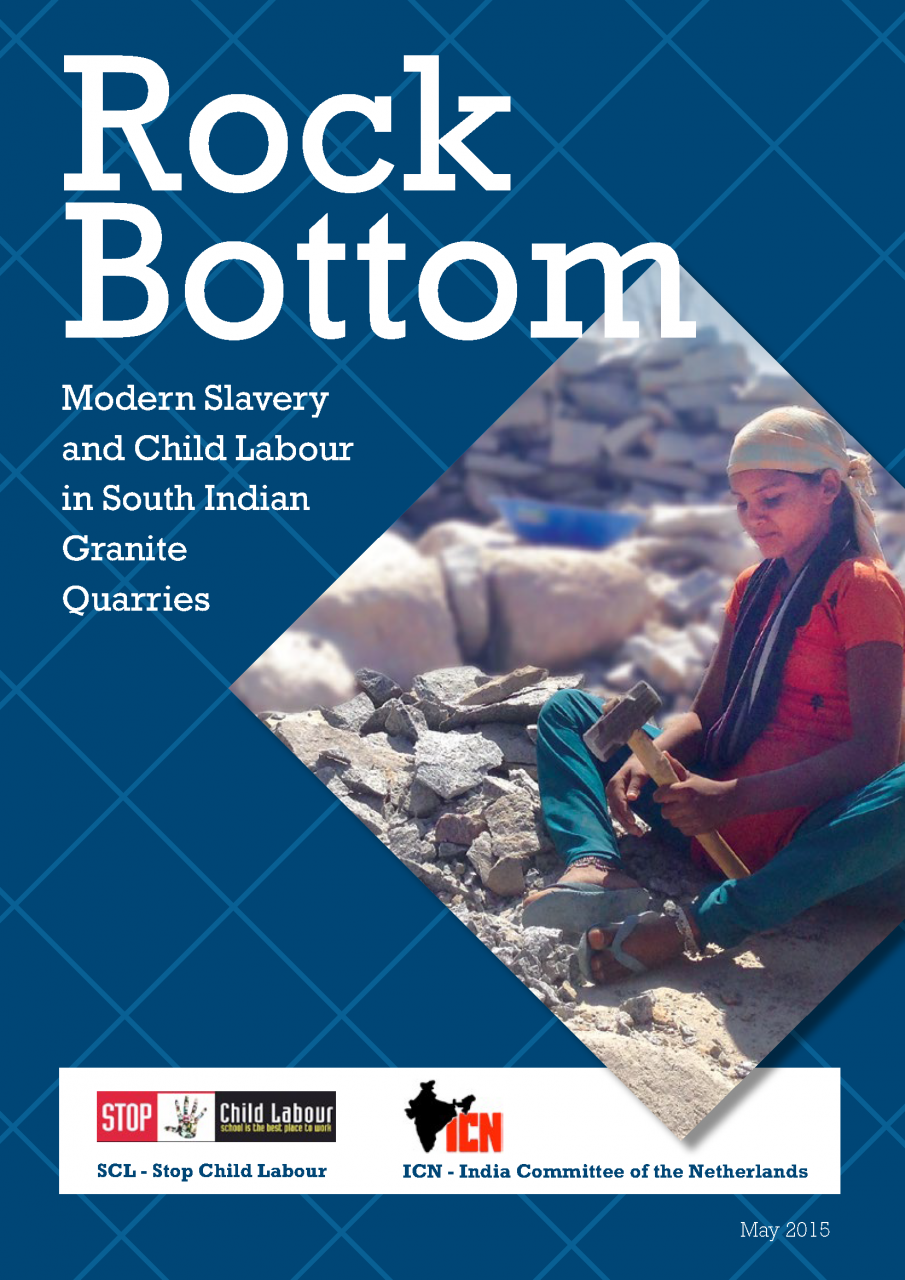Most recent publications
Download the most recent publications by Arisa below or read here more about our research.
Annual reports
January 2026
Blind spots in textile recycling: Fashion’s sustainability claims overlook workers’ rights
Using recycled materials in garment and textile items reduces the need for virgin raw material and makes sure that part of the huge textile waste mountain that the fashion industry generates is being converted into input materials for new products. Since this supports to decrease the industry’s environmental footprint, this practice is viewed as sustainable and responsible. But what about the rights of the workers that process the textile waste? Earlier studies showed that many workers in the textile recycling industry in South Asia work under harsh conditions, with many health and safety issues, low wages and no formal employment relations and social benefits. In Arisa’s new publication, Blind spots in textile recycling: Fashion’s sustainability claims overlook workers’ rights, 20 fast fashion brands are questioned whether they include the working conditions of the textile recycling workers in their due diligence practices.
January 2026
The human cost of textile recycling Case study Pakistan
Pakistan is home to an established textile recycling industry. Used clothes imported from all over the world are sorted in the country, after which they are re-exported or end up at second hand markets in Pakistan. Next to this, post-industrial waste from its domestic garment and textile industry is processed into recycled fibres in recycling units. A new publication of Arisa, The human cost of textile recycling: Case study Pakistan, gives a sneak peek into the world of textile recycling in Pakistan. It shows the major textile recycling hubs, how they are organized, and gives a voice to the ones that are closest involved: the workers and owners of the recycling units. Read this new publication and find out about the hidden sides of textile recycling.
November 2025
The human cost of textile recycling
Case study India
India has a large textile-recycling industry, where both industrial textile waste and second-hand clothing from around the world are processed into recycled yarn. Arisa’s new publication, The human cost of textile recycling: Case study India, gives you an insight into the world of textile recycling in India. It shows how the industry is organised globally and under what conditions the textile waste is processed, and by whom. Read our new publication now and learn more about the hidden sides of textile recycling and why clothing made from recycled materials is not automatically a sustainable purchase.
اکتوبر 2025
حد سے زیادہ محنت اور نا کافی اجرت ۔ پاکستان کی گارمنٹ ایکسپورٹ فیکٹریوں میں اوقاتِ کار کی زیادتی، اجرتوں کی چوری اور
خراب حالاتِ کار
پاکستان کی ڈینم برآمدی فیکٹریوں میں کام کرنے والے مزدور طویل اوقاتِ کار، اجرتوں کی چوری اور غربت کی سطح کی اجرتوں کا شکار
ہیں۔ مزدوروں کے حقوق کی ان وسیع خلاف ورزیوں کی تفصیلات اس رپورٹ میں پیش کی گئی ہیں جو اریسا (Arisa) نے پاکستانی
محققین کے ساتھ مل کر تیار کی۔ یہ رپورٹ کراچی اور لاہور کی آٹھ گارمنٹس فیکٹریوں کے 126 مزدوروں کے انٹرویوز اور فوکس گروپ
مباحثوں پر مبنی ہے۔
زیادہ تر مزدوروں نے بتایا کہ وہ معمول کے مطابق قانونی حد سے زیادہ اوقات میں کام کرتے ہیں۔ اوور ٹائم لازمی اور اکثر بغیر اضافی
اجرت کے ہوتا ہے۔ اضافی گھنٹے کام کرنے سے انکار پر مزدوروں کو دھمکیوں، ہراسانی، اجرتوں میں کٹوتی یا برطرفی کا سامنا کرنا پڑتا
ہے۔ علاوہ ازیں، ان مزدوروں کو سماجی تحفظ کے فوائد تک بہت محدود یا بالکل بھی رسائی حاصل نہیں۔
تحقیق کی گئی فیکٹریاں پاکستان کی بڑی ٹیکسٹائل کمپنیوں کا حصہ ہیں جو برآمدات میں نمایاں کردار ادا کرتی ہیں۔ ان فیکٹریوں سے
کئی معروف بین الاقوامی برانڈز اپنے مصنوعات حاصل کرتے ہیں، جن میں شامل ہیں:
Bestseller، Boohoo، C&A، Gap، H&M، Inditex، Kontoor Brands، Levi Strauss، Mango، Next، اور Primark۔
July 2025
The Fast Fashion Waste Mountain
In Arisa’s new publication, ‘The Fast Fashion Waste Mountain’, we bring together key facts and figures on how fast fashion brands are fuelling a global waste crisis. It gives a quick breakdown of the real impact of our clothes—from what happens after we toss them to where all that textile waste ends up. It shows the various ways our discarded textiles are collected and handled in the EU, and how ‘our’ waste travels beyond borders, impacting the environment and communities around the world. Learn more about the true costs of fast fashion and how you can be part of the solution!
July 2025
Overworked and Underpaid – Excessive hours, wage theft and poor working conditions in Pakistan’s garment export factories
Workers in Pakistan’s denim export factories are subjected to excessive working hours, wage theft, poverty wages. These widespread labour rights violations are detailed in this report by Arisa, based on interviews and focus group discussions with 126 workers from eight garment factories in Karachi and Lahore, conducted in collaboration with Pakistani labour rights researchers. The majority of workers reported routinely working beyond the legal limit, with overtime described as mandatory and unpaid. Refusing extra hours often led to threats, harassment, wage cuts, or dismissal. Also they have little to no access to social security benefits.
The investigated factories are part of leading textile groups responsible for a large share of Pakistan’s garment exports. Well-known international brands are sourcing apparel products from these factories, including Bestseller, Boohoo, C&A, Gap, H&M, Inditex, Kontoor Brands, Levi Strauss, Mango, Next, and Primark.
February 2025
A hidden workforce: precarious contract labour in Tamil Nadu’s garment industry
This briefing investigates the dynamics of contract labour in the garment sector in Tamil Nadu. It explores the structure, legal frameworks, types, benefits and drawbacks of contract labour for both workers and employers. Additionally, it addresses the associated opportunities and risks that international buying brands, retailers, distribution groups and buying houses should consider in their business relationships with suppliers to ensure responsible business conduct.
January 2025
Precarious labour and silenced workers – The position of workers from Scheduled Caste communities in the textiles and garment industry in Pakistan
In Pakistan, although there is no official recognition that caste-based practices exist, discrimination against minorities, particularly Scheduled Caste Hindus and Christians, remains prevalent.
With limited livelihood opportunities in impoverished rural areas, many individuals from rural Scheduled Caste communities migrate to cities like Karachi in search of employment. In Karachi, they increasingly find work in garment factories.
This report explores caste-based discrimination and challenges that Scheduled Caste workers face in Karachi’s export-oriented textiles and garment industry.
November 2024
Caste in stone
Employment and working conditions in the Rajasthan sandstone and marble supply chains – a caste perspective
Business activities around the world can pose significant risks to workers, their communities and the environment. In industries such as stone extraction, where exploitative working conditions are prevalent, marginalised communities bear the brunt of these impacts. A new report by Arisa and the Centre for Labour Research and Action (CLRA) sheds light on the experiences of marginalised caste communities in Rajasthan, India, where workers are trapped in dangerous, low-paid and informal jobs.
Caste-based discrimination and exclusion are often fundamental drivers of widespread labour rights violations. Companies operating in or sourcing materials from caste-affected regions need to be aware of these risks and take steps to address them. Failure to do so can undermine the effectiveness of companies’ due diligence efforts.
September 2024
Trends in Production and Trade – Cotton, Textiles and Garments from Pakistan
South Asia is a particularly prominent apparel production region for the international market. After Bangladesh and India, Pakistan is the region’s third largest exporter of cotton, textiles and garments, and the eighth largest in Asia. Due to its unique geography, climate and demography, Pakistan has a largely vertically integrated supply chain, in which production activities, ranging from cotton farming to yarn spinning, textile production, sewing and recycling are present domestically.
As Pakistan’s ailing economy faces a multitude of crises including inflation, political unrest and environmental catastrophe, its cotton, textile and garment exports will remain indispensable to the country’s prosperity for the foreseeable future. This report provides an overview of recent trends in export destinations and prominent product categories, as well as a mapping of key Pakistani manufacturing firms and foreign buyers. As such, it aims to establish an overview of recent developments in Pakistan’s cotton, textile and garment industry.
Garments and textiles
June 2023
RVO-WISH Project
(Wage Improvements in Seeds Hybrids) – Child Labour and minimum wages baseline and risk assessment study
Child labour and non-payment of minimum wages in hybrid vegetable seed production in India has received a lot of attention in recent years. Several industry reports by Fair Labor Association (FLA) and Arisa indicate that the seed production sector in India faces several critical and systemic human and labour rights issues. Current wages in the sector are often lower than the legal minimum wage in the region, and although child labour has been greatly reduced in recent years, it remains an ongoing challenge.
In 2021, BASF, Syngenta and Arisa joined forces in a multi-stakeholder collaboration called Wage Improvements in Seed Hybrids (WISH) to strive for minimum wage compliance and tackle child labour in the vegetable seed sector in India.
The four-year WISH project consists of two phases: In the first phase, WISH conducted a baseline survey to map the current status of child labour and minimum wage in the seed production sites where BASF and Syngenta operate, and to develop indicators to measure future project outcomes.
This report is the result of the first phase. Field and production cost data were collected and analysed by Glocal Research and MV Foundation, two India-based organisations, with support from Arisa. The study is not limited to Syngenta and BASF farms, but includes information from several companies operating at the research sites.
Child labour
Minimum wage
Vegetable seeds
March 2023
Hides & Hardship – Caste-based discrimination in the leather industry in India, Bangladesh and Pakistan
Leather work is seen in India, Bangladesh, and Pakistan as dirty and undesirable. Many of the people who work in the industry – and in India the overall majority – occupy marginalised places in society and often lack any other livelihood option. They are vulnerable to exploitation and have little if any possibility of moving forward in work or in life to break the cycle of poverty and discrimination for themselves or their children.
A specific connection between caste and the leather industry can be identified, while a religious aspect is present as well, especially in India. Since religious minorities face many challenges in these three countries, the interlinkages between caste, religion, and leather work cannot be ignored when looking at discriminatory practices in the industry in these countries.
This paper shows that caste and related discriminatory practices, at times specifically interlinking with religion, are high risk factors for businesses that source leather or leather products from India, Bangladesh, or Pakistan. It explains how caste-based and religious-based discrimination presents itself in these countries and how this connects to the leather industry.
Discrimination (caste, gender, religion)
Leather
March 2023
Labour abuses in supply chains uncovered – Leather and leather shoes from India
The leather and leather goods industry in India makes a substantial contribution to global demands for leather and leather goods, as well as contributing a decent share to the country’s Gross Domestic Product (GDP). In 2019, Indian leather exports totalled about 5.5 billion USD and helped to employ nearly 4.42 million formal workers. All stages of leather production take place in India – from larger export tanneries and factories manufacturing leather goods to smaller workshops and home-based workers stitching leather uppers for shoes by hand. The sector is often associated with poor working conditions, such as low wages, long working hours, health and safety issues, informal employment relationships and challenges when it comes to freedom of association.
New information about the working conditions in India, Bangladesh and Pakistan was gathered for the Together for Decent Leather programme. Three field studies were carried out in each of these countries. In this briefing paper, we provide an overview of the study’s main findings about the working conditions of leather workers in the state of Tamil Nadu in India. This briefing paper turns the spotlight on the leather cluster in Tamil Nadu, and how this cluster relates to the Indian leather industry and export market. An important aspect of this paper is the link that is made with international companies that are related to the Tamil Nadu leather industry – and therefore face potentiel risks in their supply chains. This report is based on the full field study report (which can be found here) published under the umbrella of Together for Decent Leather.
July 2021
Seeds of Oppression
“Seeds of Oppression”, released by Arisa and CLRA, highlights a slavery-like reality for many workers in Gujarat – mostly migrants from other areas – who work in the cottonseed sector. The abuses described in this report, such as forced labour, sexual exploitation, structural underpayment and appalling working conditions, are still a daily reality in 2021. When these workers question their employers about facts, the narrative is quickly circulated that they are disobedient and this reduces their chances of future employment.
Forced labour
Garments and textiles (cotton seeds)
May 2021
Spinning around Workers’ Rights – International garment companies linked to forced labour in Tamil Nadu textile mills
There is a serious risk that workers are trapped in forced labour conditions in the Indian spinning mills that produce yarn and fabrics for the international clothing and textile industry. Large-scale research undertaken by SOMO and Arisa, of 29 spinning mills in the Indian state of Tamil Nadu, presented in the report ‘Spinning Around Workers’ Rights’, has revealed this exploitation. On top of that, the already vulnerable workers in this sector are severely affected by the ongoing Corona crisis.
Child labour
Discrimination (gender, caste)
Forced labour
Garments and textiles
May 2021
Leather products from India – Trends in production and trade
Arisa takes part in the “Together for Decent Leather” programme, a three year programme that focuses on bettering the labour conditions of leather workers in India, Pakistan, and Bangladesh. As part of this programme, overviews of trends in production and trade of leather and leather products are drafted, one for each of the production countries. Arisa published the country overview for India on May 18, in which information can be found on the production of leather and leather products in India, where these are shipped to, and what companies are buying them. Download the report below.
June 2020
Textile Recycling Unravelled
At a time when the recycling of materials and the drive to achieve a circular economy are high on the agenda, textile collector and social entrepreneur Sympany and NGO Arisa publish the report “Textile recycling unravelled”. The report shows that the textile recycling chain is complex and involves risks on child labour and poor working conditions. It focuses on the city of Panipat in India, where a substantial part of the economy depends on the recycling of imported used textiles, including from The Netherlands. Sympany and Arisa call on businesses involved in these textile recycling chains to take their responsibility and address the existing risks.
June 2020
Between a Rock and a Hard Place
Sandstone is widely used in Europe as cobblestones. This report shows that progress has been made as compared to the findings of Arisa in 2005. Child labour has been greatly reduced in the quarries, but it is still common, especially in the cobblestone making in home yards. In addition to child labour, the study also looked at paying minimum wages. The situation here is a lot less positive. Women in particular are discriminated against because they are given other jobs – for which less is paid – than men. The report also shows that silicosis, an incurable lung disease, is a major problem which receives far too little attention.
June 2020
Sowing Hope
New report published by Arisa, with a hopeful message. The report “Sowing Hope” shows that in the past five years important steps have been taken to combat child labour in the cottonseed and vegetable seed production in India. Child labour declined, particularly in areas where significant interventions took place to address the issue.
In addition to child labour, the study also examined the payment of minimum wages. The outcome was less positive. The gap between prevailing wages and minimum wages has increased. Particularly women are paid below the minimum wage and are also discriminated against because they are given other – less paid – tasks than men.
Child labour
Garments and textiles (cotton seeds)
Minimum wage
Vegetable seeds
November 2018
Remedies for Indian seed workers in sight?
This report of the India Committee of the Netherlands (ICN) reveals that despite progress in addressing child labour, seed companies have not fully addressed the issue yet and are largely failing to take sufficient measures to address non-payment of minimum wages, especially for women.
Child labour
Garments and textiles (cotton seeds)
Minimum wage
Vegetable seeds
June 2018
Case closed, problems persist
Social Accountability International (SAI) – a social certification organisation for factories and organisations, and the Ethical Trading Initiative (ETI) – an alliance of companies, trade unions and voluntary organisations working to improve the lives of workers – have failed to deliver on promises to deal effectively with concrete complaints about abusive labour conditions for girls and young women in the textile and garment industry in South India.
This is the finding of an analysis of the non-judicial complaint mechanisms set up by ETI and SAI presented in a report by the India Committee of the Netherlands (ICN), SOMO and UK-based HomeWorkers Worldwide (HWW).
January 2018
Labour without liberty
Female migrants employed in India’s garment factories supplying to big international brands like Benetton, C&A, GAP, H&M, Levi’s, M&S and PVH, are subject to conditions of modern slavery. In Bangalore, India’s biggest garment producing hub, young women are recruited with false promises about wages and benefits, they work in garment factories under high-pressure for low wages. Their living conditions in hostels are poor and their freedom of movement is severely restricted. Claiming to be eighteen at least, many workers look much younger. These are some conclusions from this report by ICN, CCC and GLU.
August 2017
The dark sites of granite
New research, commissioned by the India Committee of the Netherlands and Stop Child Labour, reveals that modern slavery, low wages, unsafe and unhealthy working conditions are rampant in granite quarries in South India. In some quarries, especially in waste stone processing, child labour is found.
There is an enormous gap in working conditions between permanent workers (mainly supervisors) and casual workers (70% of the workforce). The first group receives safety equipment, insurance and an employment contract, while the casual labourers doing the dangerous manual work, lack those fundamental labour rights.
March 2017
Do leather workers matter?
Around 2.5 million workers in the Indian leather industry often face unacceptable working conditions that violate their human rights and seriously affect their health. Toxic chemicals used in tanneries often very negatively impact the health of the workers. Less known are the many labour and other human rights issues in the leather industry like wages below the stipulated minimum wage, child labour, the exploitation of home-based workers, the difficulty to organize in trade unions and the discrimination of Dalits (‘outcastes’).
This is in short the plight of leather workers that is described in more detail in this ICN report.
Child labour
Discrimination (caste, gender, religion)
Leather
December 2016
Fabric of Slavery
This research shows that various forms of modern slavery, including child slavery, are found in more than 90% of the spinning mills in South India. These spinning mills produce yarn for India, Bangladeshi and Chinese garment factories that produce for the Western market.
The report Fabric of Slavery exposes the scale on which young girls and women are enslaved by employers who withhold their wages or lock them up in company-controlled hostels. They work long hours, face sexual harassment and do not even earn the minimum wage. Gerard Oonk, director of ICN: “We have raised the issue for five years now, but even to us the scale of this problem came as a shock.”
Child labour
Discrimination (caste, gender, religion)
Forced labour
Garments and textiles (spinning mills)
May 2015
Rock Bottom
Modern slavery is widespread in Indian quarries. Child labour also occurs frequently. Most Dutch importers of Indian granite give no information from which quarries they are sourcing their granite or say they do not know from which quarries the stone comes from.
This is the main outcome of the report Rock Bottom – Modern Slavery and Child Labour in South Indian Granite Quarries on working conditions in South Indian granite quarries which is published by the India Committee of the Netherlands in collaboration with the coalition Stop Child Labour.

May 2011
Captured by Cotton
This report highlights several labour rights violations faced by girls and young women employed under the Sumangali Scheme in the Tamil Nadu garment industry. The Sumangali Scheme equals bonded labour, on the basis of the fact that employers are unilaterally holding back part of the workers’ wages until three or more years of work have been completed. In addition, workers are severely restricted in their freedom of movement and privacy. Workers work in unsafe and unhealthy circumstances. Local and international NGOs have reported extensively on the Sumangali Scheme. Inevitably, brands and retailers sourcing from Tamil Nadu have Sumangali workers in their supply chain.
Arisa and SOMO denounce the Sumangali Scheme as outright unacceptable and are of the opinion that sourcing companies have a responsibility to ensure that workers’ rights are respected throughout their supply chain.
April 2021
Maid in India
In this report we present our findings on the labour conditions in the South Indian garment and textile industry. In Tamil Nadu young women workers continue to suffer exploitative working conditions while making garments for Western brands. Thousands of girls work under recruitment and employment schemes that amount to bonded labour.
‘Maid in India’ features case studies of four large Tamil Nadu–based garment manufacturers that produce for the European and US markets. The majority of the workers are Dalit (outcaste) girls younger then 18 hailing from poor families who are lured with promises of a decent wage, comfortable accommodation and, in some cases a sum of money upon completion of the contract that may be used for their dowry. A large number of these labour migrants live in (factory) hostels where they have little to none interaction with the outside world, let alone trade unions or labour advocates. Workers are expected to work long hours of forced overtime under unhealthy conditions. Trade unions are weak and face enormous opposition.
This report aims to provide relevant stakeholders – manufacturers, brands, multi-stakeholders initiatives, governments and others – with input to enable and motivate further action.
Discrimination (caste, gender, religion)
Forced labour
Garments and textiles
December 2005
